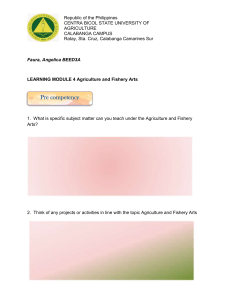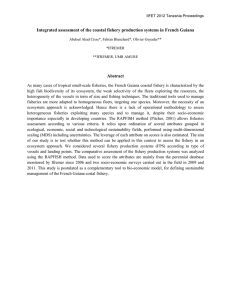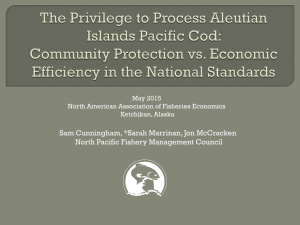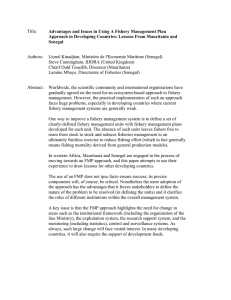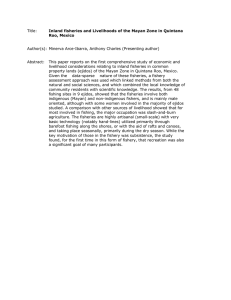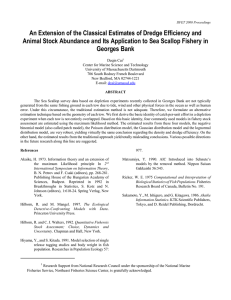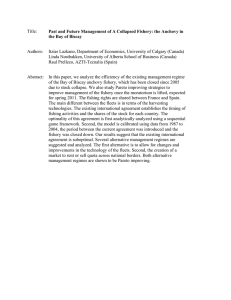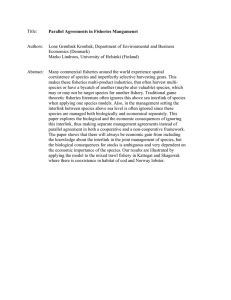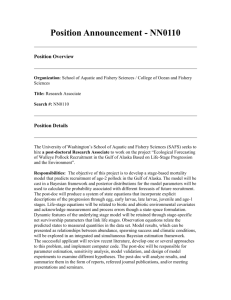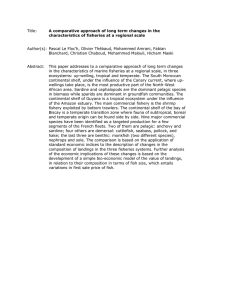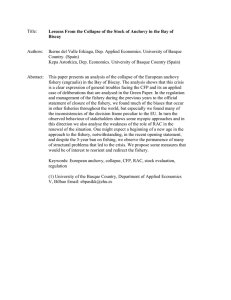Title: Authors: Sebastian Villasante,
advertisement
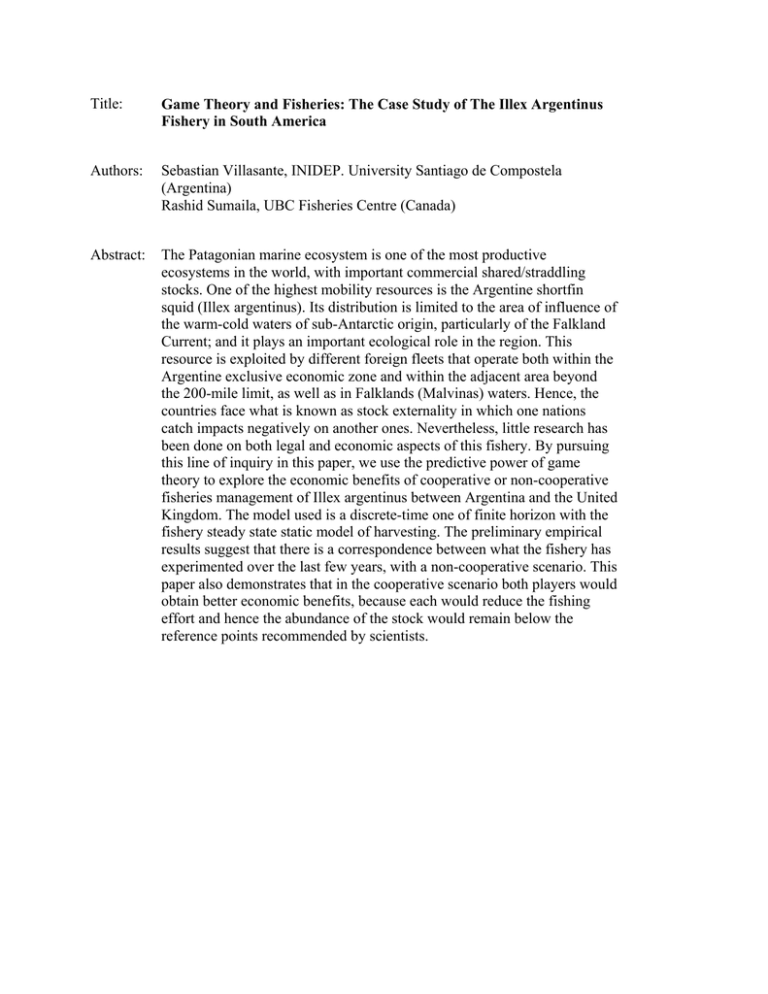
Title: Game Theory and Fisheries: The Case Study of The Illex Argentinus Fishery in South America Authors: Sebastian Villasante, INIDEP. University Santiago de Compostela (Argentina) Rashid Sumaila, UBC Fisheries Centre (Canada) Abstract: The Patagonian marine ecosystem is one of the most productive ecosystems in the world, with important commercial shared/straddling stocks. One of the highest mobility resources is the Argentine shortfin squid (Illex argentinus). Its distribution is limited to the area of influence of the warm-cold waters of sub-Antarctic origin, particularly of the Falkland Current; and it plays an important ecological role in the region. This resource is exploited by different foreign fleets that operate both within the Argentine exclusive economic zone and within the adjacent area beyond the 200-mile limit, as well as in Falklands (Malvinas) waters. Hence, the countries face what is known as stock externality in which one nations catch impacts negatively on another ones. Nevertheless, little research has been done on both legal and economic aspects of this fishery. By pursuing this line of inquiry in this paper, we use the predictive power of game theory to explore the economic benefits of cooperative or non-cooperative fisheries management of Illex argentinus between Argentina and the United Kingdom. The model used is a discrete-time one of finite horizon with the fishery steady state static model of harvesting. The preliminary empirical results suggest that there is a correspondence between what the fishery has experimented over the last few years, with a non-cooperative scenario. This paper also demonstrates that in the cooperative scenario both players would obtain better economic benefits, because each would reduce the fishing effort and hence the abundance of the stock would remain below the reference points recommended by scientists.
